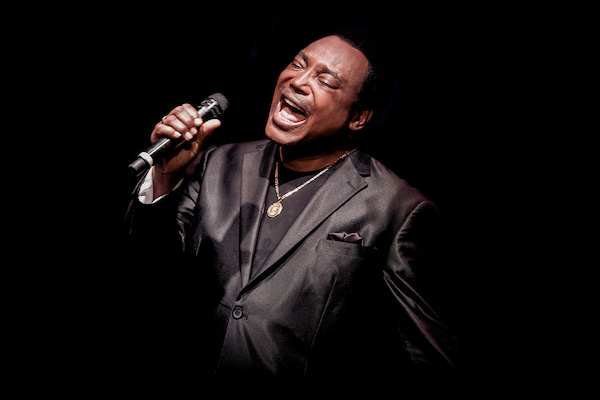Jan 13, 2026 2:09 PM
More Trump-Kennedy Center Cancellations
The fallout from the renaming of the John F. Kennedy Center for the Performing Arts to include President Donald…

George Benson’s latest album was recorded live at Ronnie Scott’s in London.
(Photo: Carl Hyde)As an 8-year-old busker, George Benson boasted a big voice and a broken-down ukulele that he wielded with prodigious skill. By all accounts, his act was something of a spectacle on the streets of postwar Pittsburgh.
So, it was no surprise that when word of the child prodigy reached singer Eddie Jefferson—like Benson, a Pittsburgh native—the pioneer of jazz vocalese was compelled to go see the kid. Jefferson was both impressed and amused. “He and a friend both fell on the ground laughing when they heard me singing one of his songs,” Benson recalled during a September phone call with DownBeat.
Despite his current status as a global superstar, Benson, 77, has never forgotten those early days. On a July night in 2019 at Ronnie Scott’s in London, he performed the tune that made Jefferson famous—“Moody’s Mood For Love”—deftly massaging the words crafted for saxophonist James Moody’s solo. The interpretation, documented on Benson’s latest album, Weekend In London (Provogue), is at once a tribute to his own gifts and an homage to his predecessor’s.
“Eddie Jefferson was gigantic to me because he was an innovator,” Benson said.
The guitarist’s own status as a jazz innovator has sometimes been obscured by his success in generating pop hits, some of which—notably “Give Me The Night,” the title track from a 1980 album produced by Quincy Jones—appear in live versions on Weekend In London. But the many honors he has garnered—among them a 2009 NEA Jazz Masters fellowship, 10 Grammy awards and his induction, via the 2020 Readers Poll, into the DownBeat Hall of Fame—attest to his standing as a creative force.
So, too, does the praise of a multigenerational cohort of colleagues. John Scofield, 68, said he was first dazzled by Benson on hearing his second and third albums, It’s Uptown (1966) and The George Benson Cookbook (1967). Produced by John Hammond for Columbia Records, the recordings showcase Benson’s fleet fingers in the familiar setting of an organ combo. Scofield said he was so taken by the albums that as a freshman at Berklee in 1970, he made sure to catch Benson’s gig at the Boston club The Jazz Workshop.
“It blew my mind,” he recalled. “I’ve been a fan ever since.”
Laughingly admitting to stealing licks from Benson, Scofield said it was the fluidity of his articulation that was most impressive: “He has this technical thing he can do on the guitar where he plays something nobody else can play. There are only a couple of guys like that in the history of jazz guitar. Django Reinhardt and Wes Montgomery come to mind—and George.

Belá Fleck during an interview with Fredrika Whitfield on CNN.
Jan 13, 2026 2:09 PM
The fallout from the renaming of the John F. Kennedy Center for the Performing Arts to include President Donald…

Peplowski first came to prominence in legacy swing bands, including the final iteration of the Benny Goodman Orchestra, before beginning a solo career in the late 1980s.
Feb 3, 2026 12:10 AM
Ken Peplowski, a clarinetist and tenor saxophonist who straddled the worlds of traditional and modern jazz, died Feb. 2…

The success of Oregon’s first album, 1971’s Music Of Another Present Era, allowed Towner to establish a solo career.
Jan 19, 2026 5:02 PM
Ralph Towner, a guitarist and composer who blended multiple genres, including jazz — and throughout them all remained…

Rico’s Anti-Microbial Instrument Swab
Jan 19, 2026 2:48 PM
With this year’s NAMM Show right around the corner, we can look forward to plenty of new and innovative instruments…

Richie Beirach was particularly renowned for his approach to chromatic harmony, which he used to improvise reharmonizations of originals and standards.
Jan 27, 2026 11:19 AM
Richie Beirach, a pianist and composer who channeled a knowledge of modern classical music into his jazz practice,…